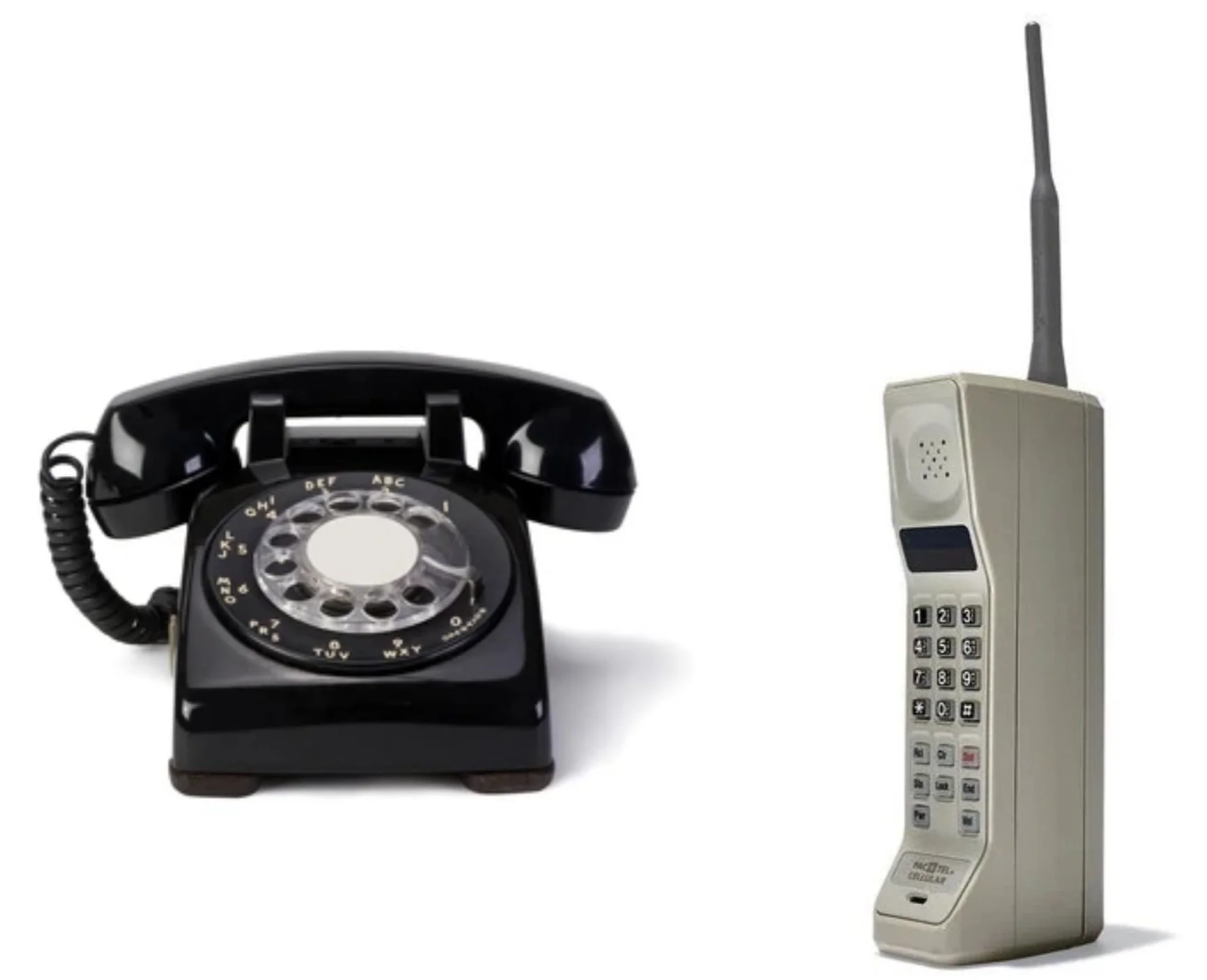Input Overload
Today is Global Day of Unplugging, an initiative created by the Unplug Collaborative to encourage entire communities to take a break from technology. Their goal is to help people gain a better understanding of the role technology plays in their lives so they can establish healthier tech habits going forward.
Lately, I've been thinking a lot about how dramatically technology has evolved during my lifetime, and the impact of being continually fed limitless amounts of captivating information and entertainment. How different things were when I was growing up in Brooklyn during the 1960s and 70s! I remember waiting all year for the Wizard of Oz to air on television, and greeting its arrival with boundless excitement.
There were only three channels back then—ABC, NBC, and CBS—and most shows were geared for the entire family. When we wanted to change the channel, we had to get up, walk over to the television and turn the knob—click, click, click. It would be a long time before video cassette recorders were invented and you could view programs at your convenience.
Most Americans were watching many of the same shows, so for better or worse, we were receiving the same messages. Because there was no fast-forwarding through commercials, everyone I knew had the same jingles stuck in our heads (i.e. Oscar Meyer bologna and Meow Mix cat food). Around the clock broadcasting didn’t begin until 1980, when the first cable station, CNN, made its debut.
Telephones were rotary, so it took a while to dial, and the length of your phone cord determined where you could take a call. I saw my first-ever mobile phone in the early 1990s. Although it was large and heavy, I was stunned at this technological breakthrough. Back then—when mobile entertainment meant carrying a paper newspaper or magazine, cameras required film and time to process, and video cameras were huge and charged all day to film for two hours—I could never have imaged a pocket-sized gadget connected to the entire world that could take and share photos and videos in an instant.
It feels important to note that while technology has evolved so quickly over these last few decades, the human brain, heart, and nervous system have remained essentially the same. Along with countless benefits and conveniences, our dependance on our devices has crept up on us in a way that’s often hard to notice and fully appreciate. We often forget that the addictive nature of technology is fueled in a large part by tech companies whose goal is to hijack our biochemistry so they can hook us on their products.
Recent studies show that, on average, American are now spending 5 hours and 24 minutes on mobile devices every day, as well as checking them at least 96 times. Unfortunately, this high level of engagement has been linked to many worrisome symptoms, including increased anxiety, depression, shorter attention spans, and sleep disruption issues.
I see Global Day of Unplugging as a welcome reminder to stop for a moment to pay close attention to our relationship with technology, especially the strength of its gravitational pull. The first article I wrote about this critical issue—“Off the Screen and Up to the Stars” for Spirituality & Health magazine in June 2021—started off with these paragraphs:
For most of my life, one of my greatest pleasures was gazing up at the stars on clear, dark nights. As my eyes adjusted, I was always mesmerized by the countless new points of light that kept magically appearing as time went by. I never tired of communing with such vast, mysterious splendor.
But lately I’ve been sad and concerned to notice that stars no longer hold my attention like they used to. Even during the most beautiful nights in the countryside, after just a few minutes I find myself heading back indoors, drawn away from the limitless beauty to re-engage with one of my technological devices. “Is there an email that needs a reply? Might my son have returned my text? Did my daughter post any new photos?”
I’ve been chagrined to face the fact that my technological devices, with their ability to deliver virtual connection and unlimited distractions at lightning speeds, is weakening my ability to stay present in the “real world.” After decades of trying to slow my overly busy mind to “be here now,”I’m noticing how often I bombard my brain with unremitting stimulation rather than consciously attuning myself to the slower, healing rhythms of nature. My iPhone creates such a powerful gravitational pull that it is slowly and insidiously becoming like the sun of my personal solar system…
I’m so passionate about the urgency of this issue that I created a comprehensive Quest for Eternal Sunshine Tech Detox Guide to inspire people to take more time away from their devices. I’ve been taking Sundays offline for over two years now, and it always grounds and resets me. Even if you only take one morning or afternoon offline, your awareness of the impact of technology on your psyche will grow.
Below are some tips and practices excerpted from our Tech Detox Guide’s “Get Liberated!” section to help you stay strong when faced with technology’s persistent lure. As Victor Frankl said, “Between stimulus and response there is a space. In that space is our power to choose our response. In our response lies our growth and our freedom.”
You can strengthen your “phone resistance muscles” just like you would any other previously unused muscles—with time and persistence. Here are some ideas you can experiment with:
Notice the strength of your phone’s lure. How often do you check it? Do you pick it up reflectively, or only when you need to initiate communication or truly anticipate seeing something important? Can you stay aware of your body and how you are feeling while you use your phone?
Embrace mini moments of mindful presence during times when you would habitually look at your phone, like when waiting for a light to change, standing in line to order your coffee, or having a snack. Resist your phone for these seconds or minutes, and use that time to simply be present, observing your feelings and sensations, as well as the world around you.
Notice how often other people are looking at their phones. As you take natural pauses throughout your day to relax and be mindful, watch how many people have their noses in their screens and note how it impacts how they relate to the outside world. Seeing the addictive nature of phones in our society will help you stay determined to stay liberated from their hypnotic qualities.
Set firm boundaries: Protect sacred time and relationships by making some rules and sticking to them. Try no devices at dinner, no devices in the bedroom, and no checking devices right before going to bed. It’s also great to avoid phones during time spent in nature, cooking, and playing with kids or pets.
To give your brain and nervous systems a much-needed rest, try fully disconnecting from your devices for one hour a day, if not more. Experiment with scheduling an entire day offline. Our comprehensive Quest for Eternal Sunshine tech detox guide will help you prepare and make the most of it. If you can’t do it weekly or monthly, try for once a year!
I truly appreciate you reading this post and thinking about this issue that feels extremely urgent to me. If you’re inspired, please share this newsletter with anyone you think would benefit, and check out our Quest for Eternal Sunshine Tech Detox Guide.
Thank you!
Myra
Tiny pauses to be right here, right now can have big results. Our Take a Moment series of micro-meditations—all under two minutes long—make taking mindful pauses as easy as possible. We invite you to "Take a Moment" to find the calm that is always within you.







